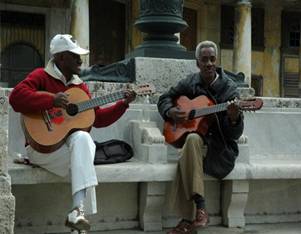
Nobody can deny the foundational importance of October 10, 1868 for the Cuban nation. Though twenty years before Narciso Lopez had, for the first time, unfurled the national flag calling for combat against the oppressor, though his voice was not listened to then, the opposite occurred in Yara, when Cubans, conscious of their nationhood, responded to the call of Carlos Manuel de Cespedes.
This historic feat, praised and respected by all generations, is generally presented only from the point of view of the heroism and selflessness of its protagonists, ignoring the economic interests, which had a fundamental role and that should not be forgotten. Many of those who rose in arms that day, maybe most of them, were rich landowning Creoles who for some time had been conspiring against Spain, as their interests in expansion clashed with the restrictive policies it ordained, that constrained their development.
They, other than their national sentiment, which without a doubt they possessed, needed to throw off the Spanish yoke that smothered their businesses and, as a result, the garnering of profits, needled by what was happening further North, where the United States was rapidly becoming a world power, with a regime of liberty and rights, that constituted the example to follow.
It is not surprising then, that even Carlos Manuel de Cespedes, in the beginning, supported annexation to the American Union, though he soon gave up on that idea, focusing his efforts on obtaining Independence. It must also be pointed out, if we are to be one with historical truth, that the initial call for emancipation of the slaves included indemnity for their owners and their incorporation into the uprising’s army as condition of their liberty, something that was only eliminated months later in the Assembly of Guaimaro, where the total abolition of slavery was decreed.
As can be appreciated, historical facts are not simple and crystal-clear, as they are sometimes presented. They are influenced by interests of a different nature, material as well as moral, that far from diminishing their value, make them more real, and illuminate their protagonists not as gods of purity come down from Olympus, but as mere mortals, with light and shadow, that sometimes are right and sometimes are mistaken, but that are capable of imposing themselves over their difficulties and reaching their objectives.
On October 10, 1868 patriotic and economic interests conspired. The same has happened in other historical moments of the Cuban nation, up until our days. Today, the same as in 1868, the political and economic chains imposed by the model, hinder the development of citizen initiative and that of its the productive forces. To overcome this anachronistic situation is everybody’s obligation, so that the country can advance, eliminate the accumulated misery and take its rightful place among free nations, a place it once held thanks to the work of all her children and that, because of erroneous policies, it lost.
*Translator’s Note: The Cry of Yara.
Translated by: lapizcero
October 13 2011
